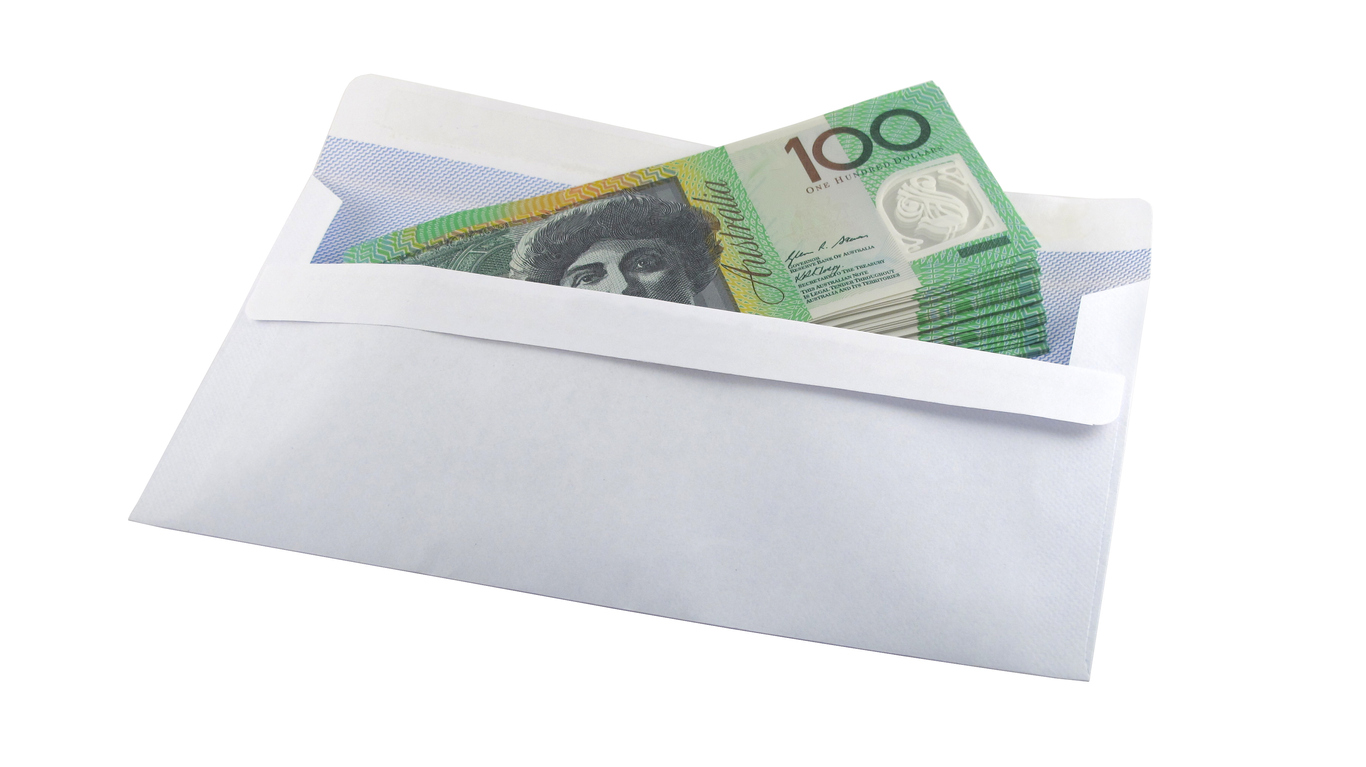
Explaining retirement lump sums and how they work is not nearly as simple as it sounds. Yes, there is a straightforward definition from the Australian Tax Office (ATO) – a lump-sum is an amount paid all at once, as opposed to an amount that is divvied up and paid in instalments.
But there are superannuation and Centrelink rules which apply to lump sums depending upon whether they are incoming (i.e. amounts received) or outgoing (i.e. amounts withdrawn).
The following is a brief overview of key aspects of lump sums and how they might affect your retirement planning, investments, or income.
Remember, the devil is always in the detail, so if you are needing specific guidance regarding an Age Pension application or a change to your entitlement, our team is always available to directly address your issue in a one-on-one consultancy.
Alternatively, if you feel that independent financial advice will assist your decision-making, you can book an appointment to check the rules relevant to your situation.
‘Incoming’ lump sums
Lump sum contributions to your super
Any lump sum contributions to your super would be those over and above the 10% Super Guarantee Contribution (SGC) made by your employer if you are still working. You might also be contributing a pre-tax ‘salary sacrifice’ amount which is usually taxed at a lower rate than your marginal tax rate. Total pre tax contributions (employer contributions and salary sacrifice) must not be more than $27,500 per year to receive the concessional tax treatment. If you are making an after-tax super contribution (non-concessional), you can contribute up to $110,000 in any one financial year. In certain circumstances you can contribute up to $330,000 using what are known as the bring forward provisions. It may be possible to also receive a tax deduction for some lump sum contributions.
Proceeds from the sale of your home
Downsizing is another way of releasing cash to top up your super. If you’ve owned your home for more than 10 years, are aged over 65, and you choose to sell, you are allowed to contribute up to $300,000 from the proceeds of the sale. There are other eligibility requirements and having higher assets (upon which Age Pensioners will be deemed to earn income) may well change your Age Pension entitlement. Deciding to use the so-called ‘downsizing’ contribution strategy is a major decision with income, tax and age pension entitlement consequences so it is wise to seek qualified advice before you act. Remember that whilst the proceeds may be exempt under the assets test, the deemed earnings will be taken into account under a pension income test.
Inheritances and other windfall gains
Perhaps you have received a sizeable amount as an inheritance, or a lottery win. Both will be viewed as assets and income will be deemed on these amounts if you receive, or apply for, an Age Pension. If, however, your lottery win is a certain amount paid on a regular basis, it will be assessed as income rather than an asset.
Redundancy payments
if you receive a redundancy/severance payment then Centrelink will assess those lump sums as income. However, lump sums such as annual/long service leave are considered assets. So some lump sums you receive upon finishing work can be considered income whilst others are considered assets.
Work related bonuses
Other bonuses you may have received as part of your departure from the workplace – such as sales commissions, or productivity bonuses – can also be viewed as assets, and therefore will be deemed to earn income.
Lump sum ‘outgoings’ or withdrawals
Lump sums and retirement
Reaching preservation age [link to https://retirementessentials.com.au/should-i-cash-out-my-super/ ] means being able to access your superannuation savings. You can now take your super as a lump sum (usually tax free from age 60). The rules of your super fund will dictate whether you could take all of your super in one go, or in a series of lump sum payments. But because you can, does not necessarily mean that this is a good idea. There are sensible ways of using lump sums and there are other ways that mean you could reduce your savings and might well be forced to live on a lower income stream. It is extremely important to fully understand the pros and cons before you jump in and make a mistake that can’t be reversed. Some of the ways superannuants use their lump sums are:
- to reduce debt, particularly household mortgages, resulting in a saving on interest
- to invest in financial products such as shares, property or ETFs
- to pay for other major expenses such as home renovations, a vehicle or big trips
- to purchase income stream products such as account-based pensions or annuities
- It is entirely up to you how much you might wish to withdraw as a lump sum and how you will use it.
BUT…
(and this is a big but) your lump sum withdrawal decisions will have a significant impact on your overall retirement income.
Such withdrawals can affect the tax you pay, particularly on investments outside your super fund, your Age Pension entitlements, both the income and assets tests and the amount of money you have left to fund day-to-day costs in retirement, over what could well be a 30-40 year period.
Many retirees manage to hit the ‘sweet spot’ in managing their lump sums by withdrawing enough to have a fun travel adventure, or update their homes for future needs, whilst leaving enough in super, or investing in an income stream, to ensure they have sufficient ongoing income.
It’s possible to do this by knowing the rules, considering all options, and consulting a professional about your own specific situation before you make a final decision. If you need Age Pension guidance our consultation team is ready to respond.
If you need more specialised financial advice, why not book a call with an experienced financial adviser?
And if you are unsure what you might be entitled to receive you always check your entitlements on our free calculator.
This article is provided by Retirement Essentials Representative Number: 001260855. We are an authorised representative of SuperEd Pty Ltd ABN 88 118 480 907 AFSL #468859. This information is not intended as financial product advice, legal advice or taxation advice. It does not take into account your personal situation, goals or needs and you should assess your own financial situation, consider if the information is suitable for you and ensure you read the relevant Product Disclosure Statement (PDS) if you choose to make any changes to your financial situation. It is always advisable to consult a financial adviser before making financial decisions.



HI There.
I’m self employed, 70, and satisfy the work test.
I’m able to claim the $27.5k before tax contrib.
Q I want to add to my super (not large at the moment) by further non contrib.
Is the total contrib I can make $137.5k or is it $110K of which $27.5k is claimed as a 15% tax deduction.
Hi Paul, thank you for reaching out for help clarifying the total contributions and tax deductions. For you and anyone else who would like to have a discussion with someone they can trust about about this topic we do offer financial advice consultations.
Our financial advice consultations are designed to help you better understand your needs and goals in retirement and some of the actions you can consider to help you achieve those goals. The consultation is online, goes for up to 45 minutes and costs $150.
CLICK HERE to book now.
Hello
I am going to be 76 in April and am still working full time
Last year when I turned 75, I was told that I could not contribute salary sacrifice after 75
Why? The government keeps telling us to work as long as we can, but they don’t give us incentives to do so – I want to salary sacrifice because I am a woman who was a wife and mother for many years without any super, and only went back into the workforce at 50 years of age – so I do not have enough super to retire – this to me seems very very unfair and seems to discriminate against the older worker
Hi,
If a couple are separated and both living under the same roof because being pensioners, they cannot afford to live separately – can they sell their current home and buy a new one in both names, continue living together and still be considered as being separated and get single pension?
Hi Sir/Madam, this is a tricky question that we cannot easily answer. Centrelink assess situations like this on a case by case basis. As per THIS LINK there are 5 key aspects of the relationship Centrelink will take into account and the scenario you have mentioned could potentially come under “financial interdependence” or “level of commitment you have to each other”.
It is worth noting that no one of the 5 aspects outweigh the other, this is why we cannot specify how Centrelink will assess you as there are many factors that they take into account. You can try calling Centrelink on 132 300 however there is a specific team who assess situations like this that you will not be able to speak with so the agent who answers your call may not be able to give any more clarity then we have.